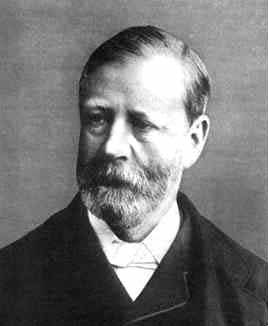Henry William Watson facts for kids
Henry William Watson (born February 25, 1827, in London, England; died January 11, 1903, near Coventry, England) was a very smart mathematician. He also wrote many important books about math and science. Besides his work with numbers, he was also a priest and a special member of a group called the Cambridge Apostles. He was even made a Fellow of the Royal Society, which is a big honor for scientists.
Early Life and Education
Henry William Watson was born in a part of London called Marylebone on February 25, 1827. His father was Thomas Watson, who worked for the Royal Navy, and his mother was Eleanor Mary Kingston.
He went to school at King's College London and then to Trinity College, Cambridge. At Cambridge, he was incredibly good at math. In 1850, he earned a special title called "second wrangler" and also won the Smith's Prize. These were big achievements for a math student! After graduating, he became a fellow at Trinity College in 1851 and worked as an assistant tutor for a few years. During his time at Cambridge, he became good friends with another smart student named James Fitzjames Stephen.
Contributions to Mathematics
Henry Watson was known for his important work in mathematics. In 1881, he became a Fellow of the Royal Society, which means he was recognized as one of the top scientists in the country.
One of his most famous contributions was with another scientist named Francis Galton. In 1875, they worked together to create something called the Galton–Watson process. This is a mathematical idea used to understand how populations grow or shrink over time, like how a family tree might expand or how a disease might spread. It's a way to predict what might happen in the future based on probabilities.
Books by Henry Watson
Henry Watson also wrote several important books that helped people learn about advanced mathematics and physics. His books covered topics like electricity, magnetism, and the movement of gases.
- The mathematical theory of electricity and magnetism (Volume 1: electrostatics)
- The mathematical theory of electricity and magnetism (Volume 2: magnetism & electrodynamics)
- A treatise on the application of generalised coordinates to the kinetics of a material system
- A treatise on the kinetic theory of gases
 | James Van Der Zee |
 | Alma Thomas |
 | Ellis Wilson |
 | Margaret Taylor-Burroughs |


